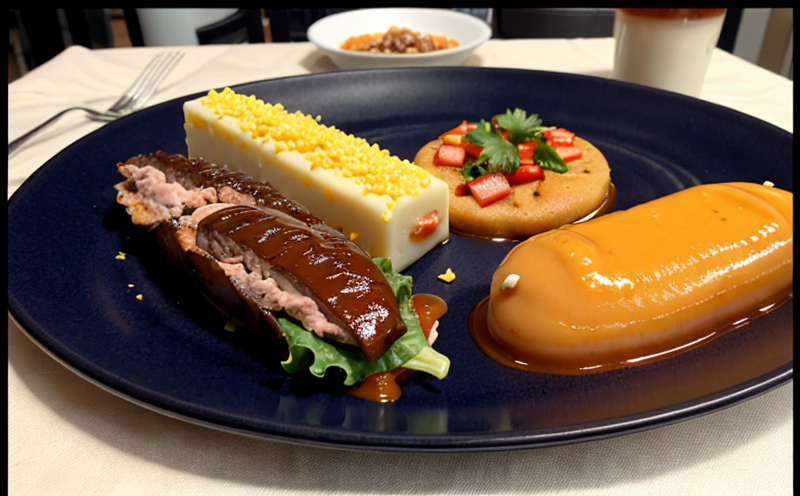EU 10/2011 Testing of Polymeric Materials for Food Contact
The EU Regulation (EC) No 10/2011 governs the placing on the market and use of materials and articles intended to come into contact with foodstuffs. This regulation ensures that the materials used in packaging do not transfer harmful substances to the food they contain, protecting public health. Polymeric materials are a crucial part of this regulatory framework as many food contact surfaces are made from these materials.
Our service specializes in testing polymeric materials for compliance with EU 10/2011. This includes assessing migration limits and ensuring that all additives used during the manufacturing process do not pose health risks when the packaging comes into contact with foodstuffs. The testing ensures that products meet stringent safety requirements set forth by regulatory bodies.
The process begins with specimen preparation, where samples are cut to specific dimensions required for accurate testing. This is followed by exposure of the specimens under controlled conditions simulating real-world scenarios they might encounter during use. Our state-of-the-art laboratories employ precise equipment and methodologies that adhere strictly to EU 10/2011 guidelines.
Our team of experts ensures that every aspect of the test—from sample preparation to final analysis—is conducted with meticulous attention to detail. The results are then compiled into comprehensive reports providing all necessary information required for regulatory compliance. Compliance officers, quality managers, and R&D engineers can rely on these reports to make informed decisions regarding product development and manufacturing processes.
Our service also includes assistance in interpreting the test results and offering recommendations based on findings. This helps our clients stay ahead of potential issues before they arise, ensuring continued compliance with EU regulations.
For those looking to innovate within this regulatory framework, our team can provide insights into new materials and technologies that could be used while still adhering to strict safety standards. By leveraging cutting-edge research and expertise, we help ensure your products not only comply but also set a new standard for safety in the food packaging industry.
Applied Standards
| Standard | Description |
|---|---|
| EU Regulation (EC) No 10/2011 | Regulation governing the placing on the market and use of materials and articles intended to come into contact with foodstuffs. |
Competitive Advantage and Market Impact
- Comprehensive understanding of EU regulations and their implications on product development.
- Access to advanced testing equipment that accurately simulates real-world conditions.
- Experienced team capable of providing expert advice throughout the entire compliance process.
- Timely delivery of reports ensuring minimal disruption to your business operations.
Use Cases and Application Examples
In the food packaging industry, polymeric materials are extensively used in direct contact with food products. These applications include but are not limited to plastic containers, lids for jars and bottles, and even some types of film wraps.
- Plastic Bottles: Testing ensures that any chemicals from the plastic lining do not leach into beverages like water or juices.
- Packaging Films: Ensuring no harmful substances migrate onto fresh produce wrapped in these films.
- Lid Seals: Checking for potential contamination risks when lids are used on jars containing sauces, dressings, and condiments.
The testing process is designed to cover all possible scenarios where foodstuffs might come into contact with packaging materials. This includes not just static conditions but also dynamic ones such as changes in temperature or pressure which could affect the integrity of the material over time.
Our service plays a critical role in helping companies navigate this complex landscape, offering peace of mind knowing their products meet rigorous safety standards before reaching consumers.





